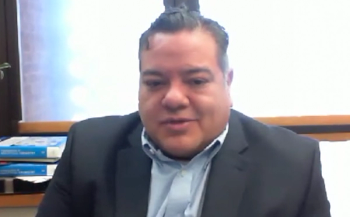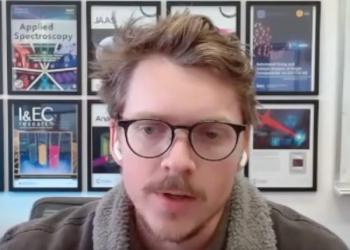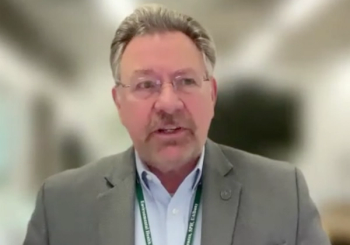
SciX 2024: Previewing the AES Early Career Oral Session
On Monday during the SciX conference in Raleigh, North Carolina, an oral session will take place featuring five talks led by early career researchers from industry and academia. We preview this session here.
The SciX 2024 Conference is nearly two weeks away. Taking place in Raleigh, North Carolina, this year’s event will feature several oral sessions, award presentations, poster sessions, and various short courses and networking opportunities for conference attendees to take advantage of (1).
On Monday October 21st from 10:30 am – 12:10 pm, an oral session, titled “AES Early Career,” will take place at SciX 2024. This session is chaired by Gongchen Sun of the University of Texas at San Antonio and Robert Williamson of North Carolina State University (2). This oral session will feature five talks, most which touch upon topics in biomedical spectroscopy.
The first talk, which will kick off the session from 10:30–10:50 am, is titled, “On the Use of Nonlinear Electrophoresis for Altering Migration Order in Electrokinetic Separations” (2). It will be held in Room 306C, and the presenting author for this talk is Alaleh Vaghef-Koodehi of Rochester Institute of Technology. Vaghef-Koodehi’s talk will explore the manipulation of microparticle migration in insulator-based electrokinetic separations using binary and tertiary particle mixtures (2). The research that will be presented here compares separations under low (linear) and high (nonlinear) electric fields, showing that particle elution order changes between regimes (2).
Second, from 10:50–11:10 am local time, Ashwin Ramachandran, a postdoc at Princeton University, will deliver a 20-min talk titled, “Microfluidic Isotachophoresis for Accelerating and Streamlining CRISPR-based Molecular Assays.” Ramachandran’s talk will address how microfluidic electrokinetic techniques can enhance and automate CRISPR-based assays for disease diagnostics (2). Ramachandran will also highlight the current limitations of traditional CRISPR workflows and demonstrate how microfluidic isotachophoresis (ITP) accelerates CRISPR reactions by concentrating reagents (2).
Third, from 11:10–11:30 am EST, Ethan Cao, a graduate student at the University of California, Irvine, will deliver a talk titled, “Nanopore Array Platforms Towards Biomimetic Ionic Circuits.” Cao’s talk will explore the fabrication of nanopore devices with varied ion transport functionalities and examines how ion concentration polarization (ICP) causes crosstalk between neighboring pores (2). Through chemical modification and computational modeling, Cao will show how his recent study offers insights for designing ionic circuits that mimic physiological ion transport systems (2).
Then, from 11:30–11:50 am EST, Chuyi Chen, an assistant professor at North Caroline State University, will deliver her talk titled, “Flowing Towards Precision Medicine: Harnessing Acoustofluidics for Biomedical Advancements.” Chen’s presentation will highlight her work in developing acoustofluidic-based biochips for solving biomedical challenges. Chen will discuss methods for isolating biomarkers like exosomes and creating biocompatible platforms for precise manipulation of model organisms in drug screening (2). The devices, capable of handling objects from nanometers to centimeters, offer unmatched versatility, precision, and biocompatibility (2). Chen will show how these advancements demonstrate the potential of acoustofluidic technology to drive significant biological and medical breakthroughs (2).
And finally, from 11:50 am to 12:10 pm, Himani Sharma of Avery Digital Data Inc. will conclude the session with a talk titled, “Next Generation Multimodal Technologies for Pure Fractionation Followed by Ultrasensitive Detection of Extracellular Vesicles (EVs), Lipoprotein (LLPs), and Ribonucleoprotein (RNPs) from Biofluids.”
Sharma’s talk will cover two innovative techniques in nanocarrier separation and biomarker detection. The first part focuses on continuous isoelectric fractionation (CIF), a method that separates nanocarriers based on their isoelectric points using a tunable linear pH profile, without the need for ampholytes (2). CIF, enhanced with machine learning, achieved 0.3 ΔpI resolution and enabled high-purity, high-yield isolation of RNPs from EVs and LLPs in various biofluids (2). The second part of Sharma’s presentation will present a lithography-free, cost-effective membrane digital ELISA (Mem-dELISA) platform for ultrasensitive, multiplex protein detection on EVs (2). With a 5-log dynamic range and a 10 aM detection limit, this platform demonstrates significant potential for clinical diagnostics, particularly in monitoring chemotherapy responses, something that Sharma will focus on in her talk (2).
References
- FACSS, About SciX. SciX Conference. Available at:
https://scixconference.org/program (accessed 2024-10-02). - FACSS, Interactive Program. SciX Conference. Available at:
https://scix2024.eventscribe.net/agenda.asp?startdate=10/21/2024&enddate=10/21/2024&BCFO=&pfp=FullSchedule&fa=&fb=&fc=&fd= (accessed 2024-10-02).
Newsletter
Get essential updates on the latest spectroscopy technologies, regulatory standards, and best practices—subscribe today to Spectroscopy.




